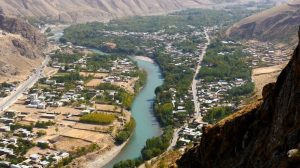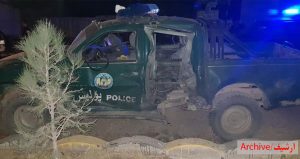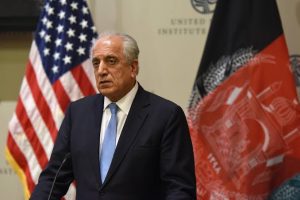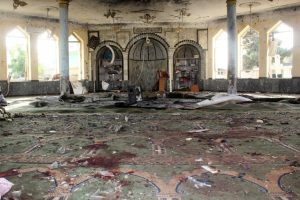
 KABUL: (MEP) North Korea announced it has successfully conducted and tested a miniaturised hydrogen bomb which following an “artificial seismic event” would be the country’s fourth nuclear test since 2006.
KABUL: (MEP) North Korea announced it has successfully conducted and tested a miniaturised hydrogen bomb which following an “artificial seismic event” would be the country’s fourth nuclear test since 2006.
In a “special and important” announcement at noon, North Korean TV claimed that the country has successfully conducted a hydrogen bomb test at 10:00am local time on January 6, 2016, based on the strategic determination of the Workers’ Party.
This is North Korea’s first claim to have tested a hydrogen nuclear bomb – more powerful than an atomic bomb.
“With the perfect success of our historic H-bomb, we have joined the rank of advanced nuclear states,” it added, noting that the test was of a “miniaturized” device, North Korea’s state-owned broadcaster, KCTV, reported on Wednesday.
The announcement followed the USGS detection of a 5.1 magnitude earthquake in the vicinity of a known Pyongyang nuclear site.
The epicenter of the jolt was located 19 kilometers (12 miles) east-northeast of Sungjibaegam, Ryanggang Province, at a depth of 10 kilometers, according to preliminary data from the US Geological Survey (USGS). Similar seismic activity in roughly the same area was recorded on February 12, 2013, prior to North Korea claiming its third successful underground nuclear test.
The test can be taken days or weeks to be able to verify claim.
North Korea’s state news agency later stressed in a statement that Pyongyang will continue to build up its nuclear program as deterrence against potential aggression from the United States.
“North Korea will act as a responsible nuclear state, and will use its nuclear armament only to defend its sovereignty” the statement noted, adding that North Korea also vowed that it will not transfer its nuclear capabilities to other parties.
South Korea’s intelligence agency is analyzing the probability of a fourth nuclear test having taken place, while the National Security Council is preparing to hold a meeting to discuss the issue, Yonhap reported.
North Korea first declared that it created a nuclear bomb in 2005. Since then, Pyongyang has conducted three known underground tests. The first, conducted in 2006 at the Punggye-ri Nuclear Test Site in the northeast of the country, contained five to 10 kilotons of explosives. It was recorded by seismic stations in Russia, China, Japan, South Korea and Australia.
The second and third tests were conducted in May 2009 and January 2013, increasing the power of the devices tested 10 to 20 kilotons of TNT each.
North Korea’s 2013 test triggered sanctions from the UN Security Council, which put restrictions on the county’s banking, trade and travel immediately.
Pyongyang also operates a nuclear reactor at the Yongbyon Nuclear Scientific Research Center, North Korea’s major nuclear facility, about 90 kilometers from the capital.
Before the test, North Korean state media said the country “deserved to hold nuclear weapons… to counter nuclear threats by the US”.
Experts believed before the fourth test that North Korea was still some years from being able to hit a target with a nuclear bomb delivered by a missile. But it is crystal clear that it is absolutely determined to be able to do so. It is also clear that it is improving its abilities rapidly.
The hydrogen bomb test was apparently ordered by North Korean leader Kim Jong-Un himself, and came just two days before his birthday.
Japan strongly condemns North Korea nuclear test
Meanwhile, Japanese Prime Minister Shinzo Abe vowed on Wednesday that Tokyo does not tolerate Pyongyang’s nuclear tests.
Stressing that Japan will give an adequate response to North Korea’s latest experiment, Abe described the move as a threat to his country’s security.
Additionally, the US called on North Korea to abide by its international commitments and obligations saying it would respond to provocations.
North Korea’s nuclear tests
Hours before the seismic activity, South Korean media reported that Pyongyang had test-fired a ballistic missile from a submarine in late December. It is unclear whether the test was successful or not.
In May last year, North Korea claimed it had successfully launched a missile from a submarine.





